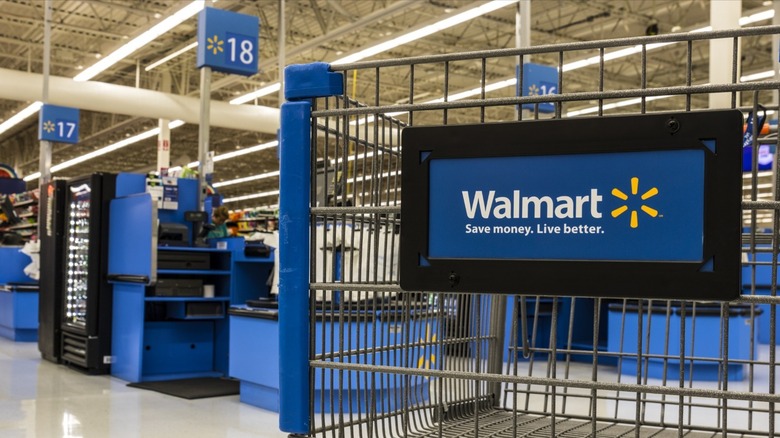How Walmart Shoppers' Food Habits Are Changing With Inflation
High inflation has not been a friend to anyone we know, least of all the retail sector, which saw consumers cut back on spending just to make their dollars stretch out a bit more. The effect of that cutback was particularly brutal on companies like Walmart which, back in May, said its earnings had fallen short of what stock analysts had expected thanks to increases in fuel prices, higher labor costs, and high inventories (per CNBC).
But even then, with its far from solid earnings report card, the company had already said it was trying to find the right mix between keeping prices low, and not letting its profits slide, as CEO Doug McMillon pointed out. "Price leadership is especially important right now and one-stop shopping becomes more than just convenience when people are paying over $4 a gallon for fuel," McMillion had said (per CNBC).
That strategy appears to be paying off, as Walmart reported its sales had gone up for the second quarter of this year, and that the company had in fact "finished stronger than we had anticipated," McMillon stated during his earnings call (via The Motley Fool).
Walmart's customer mix has changed
Still, the uptick in food inflation has impacted Walmart in a way the company may not have expected. Senior company officials like Chief Financial Officer John David Rainey share that Walmart's customer mix had changed somewhat as a result and that the discount retailer now attracts middle and high-income shoppers, whose household incomes are at $100,000 or more (per CNBC).
Other signs of inflationary times Rainey notes, are "more pronounced consumer shifts and trade-down activity. As an example, instead of deli meats at higher price points, customers are increasing purchases of hotdogs as well as canned tuna or chicken (per The Motley Fool). Rainey added that Walmart was also seeing higher sales in the store's private brands, whose growth had doubled compared to levels from the previous quarter. Thanks to more price-sensitive consumers, Walmart's membership club Sam's Club saw its membership number hit an all-time high during the second quarter.
But Walmart is still struggling to make money outside of food and consumables, and its moving items like apparel by offering deep discounts, and by canceling what he said was "billions of dollars [worth of orders] in order to help align inventory levels with expected demand." CEO McMillion also told CNBC in a separate interview that "People are really price-focused now, regardless of income level. And the longer this lasts, the more that's going to be the case."

